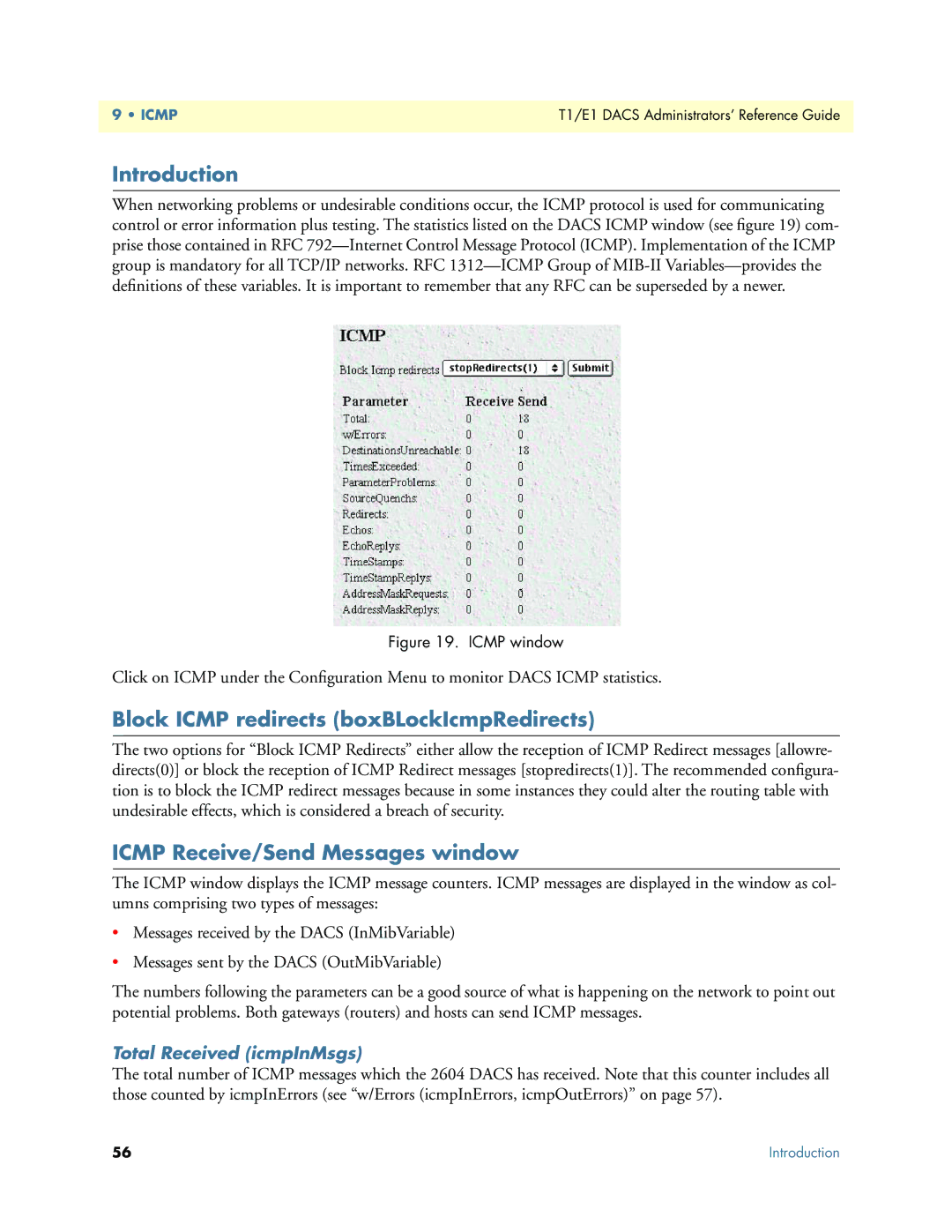
9 • ICMP | T1/E1 DACS Administrators’ Reference Guide |
|
|
Introduction
When networking problems or undesirable conditions occur, the ICMP protocol is used for communicating control or error information plus testing. The statistics listed on the DACS ICMP window (see figure 19) com- prise those contained in RFC
Figure 19. ICMP window
Click on ICMP under the Configuration Menu to monitor DACS ICMP statistics.
Block ICMP redirects (boxBLockIcmpRedirects)
The two options for “Block ICMP Redirects” either allow the reception of ICMP Redirect messages [allowre- directs(0)] or block the reception of ICMP Redirect messages [stopredirects(1)]. The recommended configura- tion is to block the ICMP redirect messages because in some instances they could alter the routing table with undesirable effects, which is considered a breach of security.
ICMP Receive/Send Messages window
The ICMP window displays the ICMP message counters. ICMP messages are displayed in the window as col- umns comprising two types of messages:
•Messages received by the DACS (InMibVariable)
•Messages sent by the DACS (OutMibVariable)
The numbers following the parameters can be a good source of what is happening on the network to point out potential problems. Both gateways (routers) and hosts can send ICMP messages.
Total Received (icmpInMsgs)
The total number of ICMP messages which the 2604 DACS has received. Note that this counter includes all those counted by icmpInErrors (see “w/Errors (icmpInErrors, icmpOutErrors)” on page 57).
56 | Introduction |
